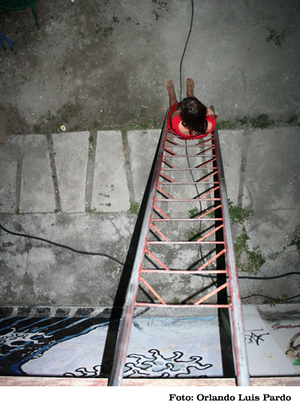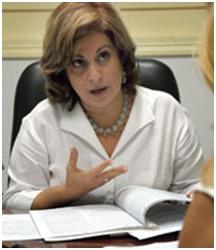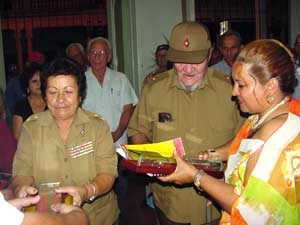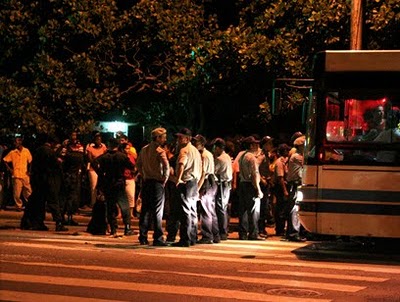
Summer vacation is here. This means joy for children, adolescents, and young adults. But many parents will have to take some aspirins. If they managed to save some money in the moneybox during the last year, like 45-year-old Mario Guillen, then they might withstand the blow.
Guillen, a steel mill worker who works 10 hours a day in a factory on the outskirts of Havana and dedicates his free time to making steel windows and doors, is a cautious man.
When he shattered his red piggy bank, he counted 438 convertible pesos (that is nearly 330 dollars). Sitting with his wife on a humid and rainy night towards the last days of June, they made some plans.
They have two sons, one is 10 and the other is 14. Both are on summer vacation from school. Guillen and his wife made their plans a month ago. “We are thinking of taking our kids to the theatre, to the theme park, a quality restaurant, and the pool. No beaches, they have told me that with oil spill in the Gulf of Mexico there have been numerous predatory marine animals that have migrated to our shores”, his wife, Mariana, worriedly states.
Rumors of fierce sharks and giant seals circling around the coasts off the beaches East of Havana really worry the parents. According to specialists and the official press, all these rumors are false. But some parents still harbor these fears.
The Guillen couple will also purchase provisions for the two months of vacation that their sons have. Now, instead of feeding them once a day, they will need to also be given lunch and snacks. “We’ll have to get some pork meat on the black market, in addition to fresh fish and chicken, rice, beans, oil, ham, sausages, and powdered soda. We’ll spend nearly 150 convertible pesos (120 dollars) on that,” points out Guillen while he makes calculations on his old Chinese-made calculator.
At least the Guillen family has enough money to plan their kids’ vacations. But if you ask Rogelio Ortega, a black man with huge eyes and a protruding belly, what recreational plans does he have for his 5 children, he’d stare back at you as if you were a strange creature.
“Same as always, lots of television. The boys could go play baseball or soccer on the streets, without shoes though, so they won’t ruin the few they already have. As for the girls, they’ll have to help their mom and grandma and play with their dolls. If I get my hands on some money, I’ll take them to the coast on a random weekend so they could go for a swim between the rocks,” he explains in a very calm manner.
“You are not scared of a possible wave of sharks?”, I ask him. Ortega pats me on the shoulder and says: “Those sharks are gonna have to be scared of my kids instead. If they see it close to them, it’s most probable that they will probably eat it, fin and all,” he says while laughing.
Families like that of Rogelio Ortega are already familiar with what summer vacation means. More of the same. TV, one meal a day, and the kids having to deal with it whichever way they can. Their finances don’t produce enough for any other option.
For Junior Mendoza, 20, a university student, vacations just mean work. “My parents don’t have the resources, I usually end up working in whatever clandestine job I can find for those two months. Sometimes I end up working at a cafeteria, an illegal cigarette factory, or even selling clothes and pacotilla (cheap merchandise). I’m the salvation of my family during the vacations,” points out the young man with a piercing on his right ear.
For now, the World Cup serves as entertainment for the majority of Cuban families. When June 11 comes around the series concludes, then that’s when the good stuff starts. An abundance of worries, lack of money, and lack of provisions. The government promised a wide variety of recreational options. A wide billboard announcing TV programs, including 55 new series and nearly 500 films. There will be sales of books, parties, fairs in public squares, and even some food offers.
Those who were able to save some money, like the family of Mario Guillen, will be aware of such events. Those who don’t have even a cent, like the smiling Rogelio Ortega, could not care less about what they offer for the 2010 vacations. For his family, summer is not a special event. On the contrary. It is a headache.
Ivan Garcia
Photo: johnhope14, Flickr
Translated by Raul G.

 Parties to cases who exercise the right of appeal can expect their applications to be rejected by administrative silence (negative silence).
Parties to cases who exercise the right of appeal can expect their applications to be rejected by administrative silence (negative silence).
 The Cuban Legal Association, an organization of independent lawyers, lodged a complaint on 24 June before the Second Chamber of the Civil and Administrative Popular Provincial Tribunal of the City of Havana, against Justice Minister María Esther Reus González, for refusing permission for the legal constitution of the guild.
The Cuban Legal Association, an organization of independent lawyers, lodged a complaint on 24 June before the Second Chamber of the Civil and Administrative Popular Provincial Tribunal of the City of Havana, against Justice Minister María Esther Reus González, for refusing permission for the legal constitution of the guild.



